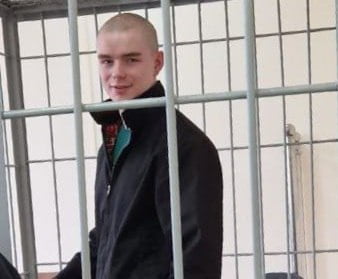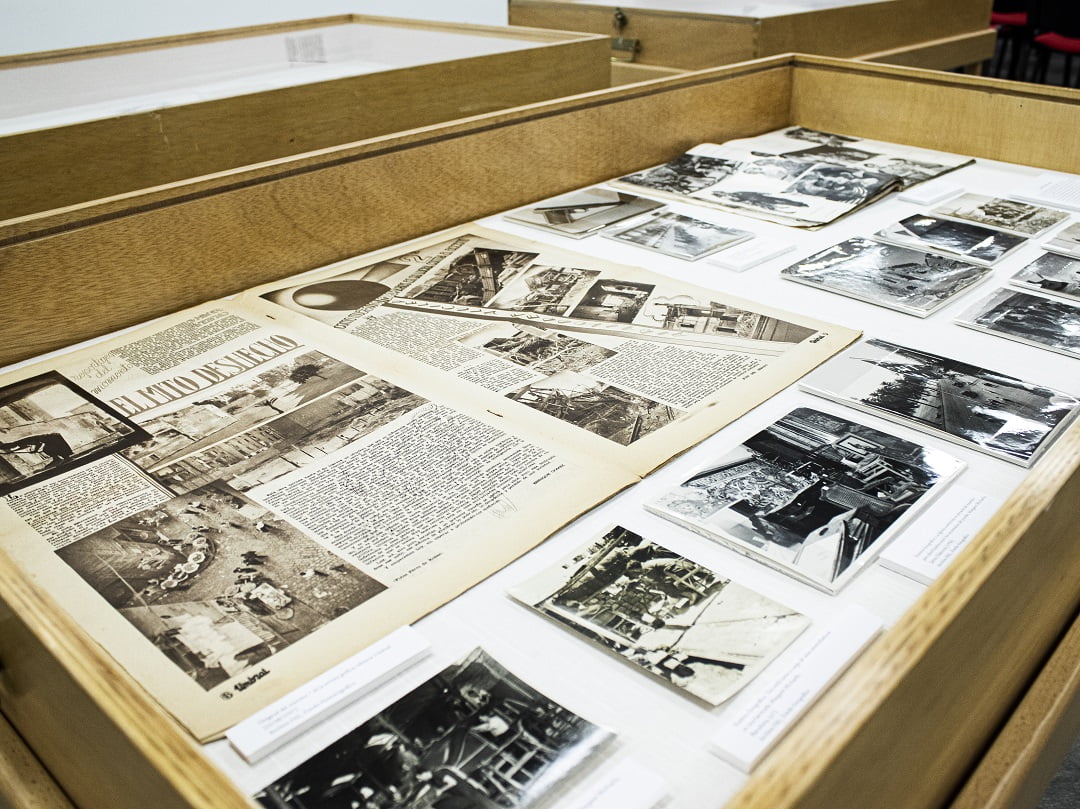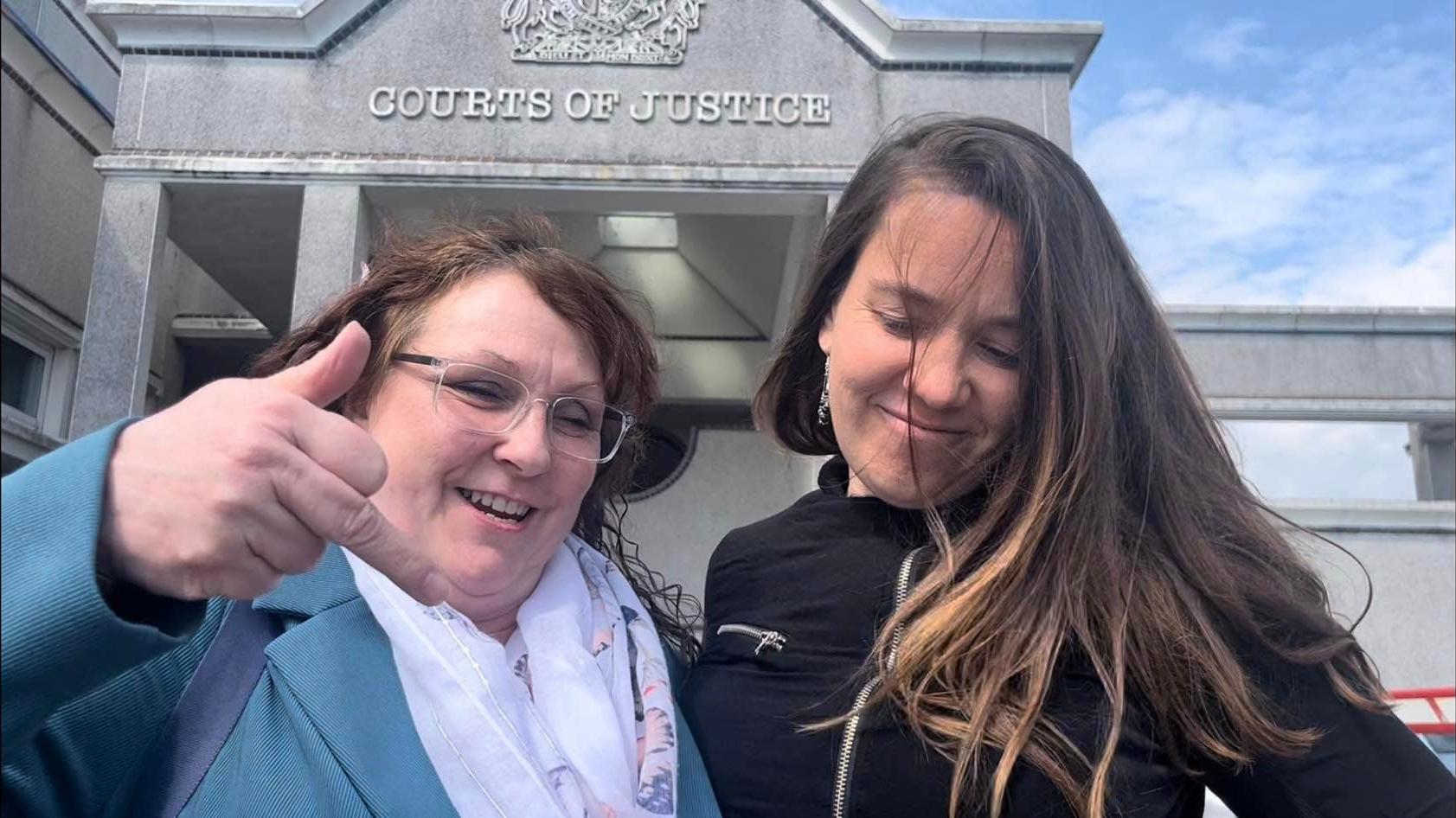Today we’ve uploaded a new set of 25 War Commentary newspapers, mostly covering late 1943 through 1944, to our digital archive and to mark the occasion Jack Saundrs looks at a set of MI5 files which show exactly how angry the Freedom Group publication was making the State at the time. The files tie in directly with an infamous free speech trial which took place later that year.
The British State has likely been watching Freedom Press in some capacity since its foundation in 1886. Its modest support base and intermittent pacifism may usually have only inspired interest from the police, but at times of heightened concern they were also watched by more prestigious arms of the secret state.
Towards the end of the Second World War MI5 began to take a close interest in goings on at the press, then headquartered at 27 Belsize Road and operated primarily by Vero Richards and Marie-Louise Berneri.
Home Office files, released in 2003, document some concern at anarchist activities in 1944, particularly the prospects of War Commentary, the press’ newspaper, circulating amongst serving military personnel. MI5 worried that anarchists had been “systematically attempting to undermine loyalty, morale and discipline” and moreover they had “achieved some degree of success in a number of cases, and that their influence in the forces is increasing”.
Freedom was sending copies of War Commentary, as well as pamphlets on historical mutinies, to several contacts in military service at that time. Their “secret source” pointed towards a small group being formed in the Royal Armoured Corps under ringleaders Trooper HEAD and Trooper William LEAN. The MI5 report claimed “It was evident that these soldiers were in possession of a quantity of anarchist literature, were in frequent touch with the Freedom Press, and were persistently spreading anarchist propaganda”.
This was apparently sufficient for MI5 to arrange for Trooper Head’s dismissal from the army. Lean wasn’t similarly dismissed, apparently because his commanding officer hoped Head’s dismissal would put him on notice. It does not appear to have worked and Lean continued spreading “subversive propaganda” amongst his forces comrades.

The police, working with the security services, raided Freedom’s premises in Belsize Park and Whitechapel on December 12th 1944. They seized a card index with the names and addresses of some 300 current and former service personnel, subscribers and supporters of the press. They also found letters from supporters, outlining some of the activities they had undertaken to spread the word of anarchism.
In one case Private B. BONNER, of the Royal Army Medical Corps, thanked the press for their interesting materials and described how he had been able to “increase immeasurably the solidarity and the union of the men in face of their NCOs and officers.”
Another soldier, Corporal Ivor DEAS of the Royal Engineers, was pleased to report that: “Pamphlets and War Commentaries are being circulated round the corp here in ‘underground channels’. I myself (comically enough) was handed one the other day, by a soldier who little suspected that I had set the whole system in motion! The soldier’s pay article-leader is naturally popular.”
The police raids on Freedom were followed up with “kit inspections” at barracks and addresses of known sympathisers (including a young Colin Ward), where copies of a Freedom Press circular on how to propagandise in the forces, as well as evidence of correspondence with Marie-Louise Berneri, were found. Soldiers caught up in the raid wrote to War Commentary complaining at the “completely unjustifiable assault upon my liberties”, another noting that “when it suits the convenience of the ruling class they will attempt to trample on all liberties”.
Likely what worried the authorities was less the ongoing conflict with Germany and more the world to come after the war. War Commentary had grown out of a previous publication focused on Spain’s Civil War (Spain and the World) and anarchists needed no lessons on the dangers of fascism. Yet War Commentary consistently looked to warn British workers, including those conscripted to the armed forces, that the interests of the ruling class ran counter to their own. In 1944, Axis forces were in retreat and the British Army was being employed to disarm anti-fascist resistance soldiers in Belgium and Greece. In Greece, British forces worked with former pro-Nazi collaborators to repress armed anti-fascists in the early stages of what became the Greek Civil War.
Corporal Ivor Deas’ writing for War Commentary warned soldiers that the ruling class had similar planned for them.
“Mr. Churchill says that the Allies are only acting to maintain ‘law and order’ [by shooting Greek leftists]. But we know whose law and order he will want to maintain; the rule of his good friends, the fascist-capitalists. In Belgium, too, the same thing is happening.
“The desires of the workers are being thwarted, and their reactionary governments are being well established by British force. The Armies of Liberation are no more – they must be renamed, Armies of Oppression and violence. Everywhere, all over Europe, if these fascist tactics of Churchill continue, aided by the British army and air force, the trapdoors of slavery will be clamped down on the workers and bolted. Churchill, the greatest enemy of Europe’s workers, knows what he is doing.
“He knows in what state of subjection workers must be kept, for the ruling class to reign secure and gain its huge profits. He knows that a servile Europe founded on British forces, with ruling classes dependent on Britain, will bring him and his capitalist friends endless power and wealth.
He, the Arch Counter-Revolutionary knows what he is doing. But you, British solider, firing on your Greek comrades, bombing their towns, subduing them with tanks, do you know what you are doing? Stop – and think. Will not their fate soon be yours?”
The extensive MI5 report, stamped Febrary 7th 1945, was later to underpin efforts to shut Freedom down in the War Commentary trial of April that year. This saw four of the paper’s editors including Richards, Berneri, John Hewetson and Philip Sansom charged with a form of sedition — attempting to cause disaffecting in the armed forces — and sparked a major free speech fight which ultimately backfired on its authors.
The report specifically mentions articles from the 1st, 11th and 25th of November 1944, all three of which would appear in the trial, discussing soviet councils in Germany after World War One, soldiers’ councils in the French Revolution and instances of mass union action linked to poor conditions in military camps.
The trial’s attempt to censor such articles was unusual, and while three of the four editors were eventually sent down, the infamous furore which took place around the case was far in excess of the reach of the paper itself. Supporters of the Freedom Group formed a defence committee that would provide a number of very famous voices in their corner, including George Orwell, Benjamin Britten, E. M. Forster, Augustus John, and Herbert Read — some of who were or went on to become contributors or allies for Freedom after the war. Given the concluding words of the MI5 papers, it’s clear the secret service’s vendetta ultimately had quite the opposite effect of its intent, putting the writing of a thus far obscure organisation with limited reach firmly into the limelight.

[Thanks to the Kate Sharpley Library for posting the selection of Home Office files on which this is article based and to Z for suggesting I look at them. You can read the files in full here.]
Pic: Front page of War Commentary, May 5th 1945
The full story of Freedom Press is explored in A Beautiful Idea by Rob Ray, and extensive research on the group’s simultaneous 1945 split has been undertaken by KSL.








